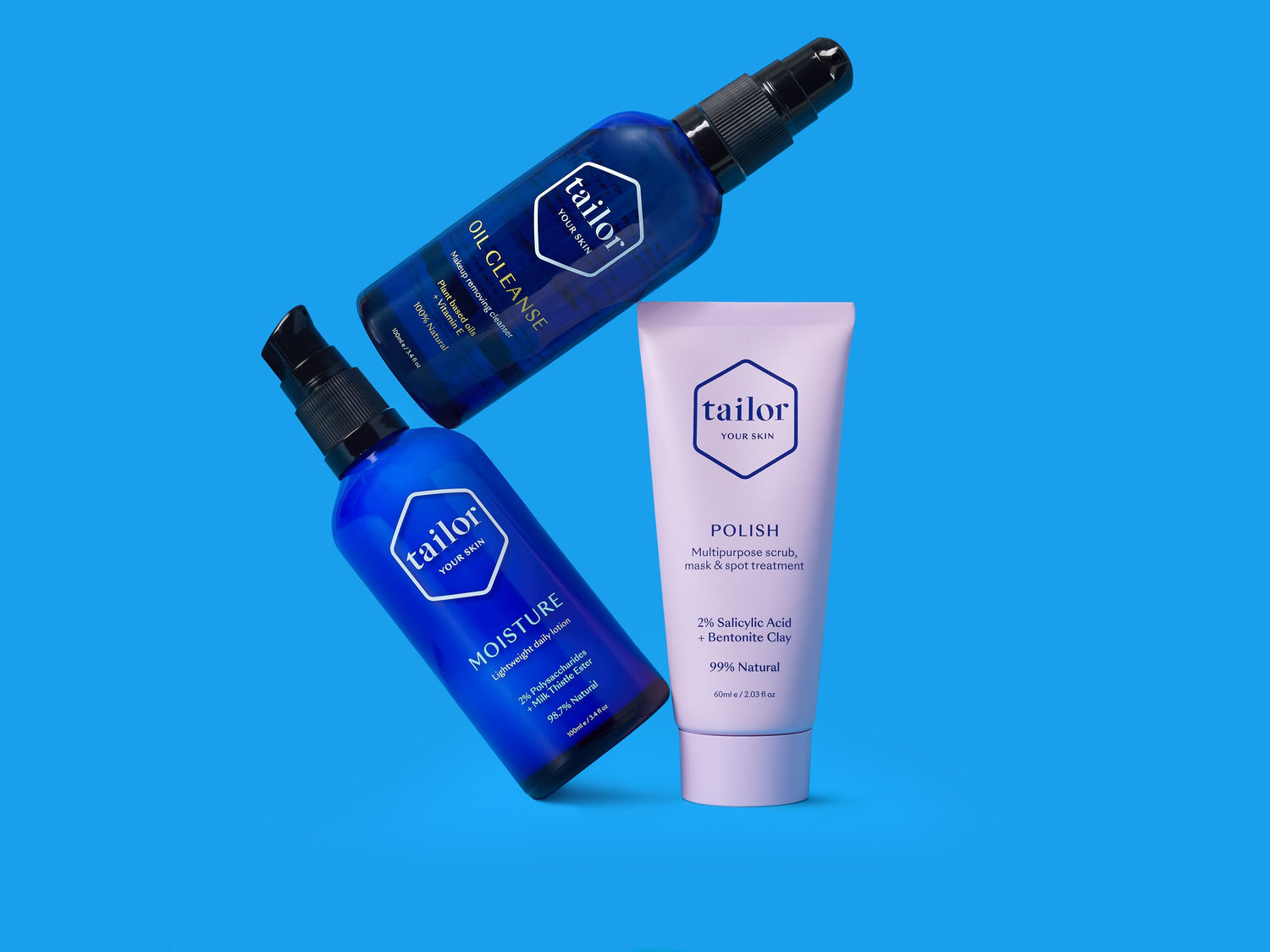Length / 6 minute read
The highly anticipated question that has been on everyone’s mind. Because seriously, what is really going on with our skin overtime? As always, we have a juicy full episode of Tailor Talk on the cards today, from how our skin physically ages, to how we can naturally support our skin during this process. Because, we’re all in this ageing thing together…

How our skin physically ages:
Have you noticed those fine lines & wrinkles starting to appear in the middle of your forehead, above your brow line, or what about in the outer corners of your eyes, or contoured around the edge of your mouth? And, have you noticed your skin just doesn’t have the same bounce as it used to. Well, haven’t we all. These are just a few of the physical changes we see in our skin’s appearance as our skin ages. It’s a natural process we will all go through, so let's dive into the science behind it.
How does our skin age behind the scenes?
Thinning and weakened skin barrier:
The actual age of our skin can not only be determined by our physical age, but it’s significantly attributed to external and internal factors which can contribute to our ageing process e.g., the environment. We will dive into these factors later in this blog. For now, did you know as your skin ages, your skin barrier starts thinning? This is because your collagen production starts to decline over time. Additionally, a thin barrier can mean your skin can experience water loss, which in turn can lose its ability to retain water to keep your skin hydrated for longer. Not only this, but a declining collagen production can also affect the elasticity (bounce in your skin). Skin elasticity is responsible for giving your skin a more youthful complexion as it firms and plumps. For example, “the loss of the elastic tissue (elastin) in the skin with age causes the skin to hang loosely.” This all means your skin needs a helping hand to help replenish your skin’s collagen production. The two are related because "as the dermis produces less collagen, your skin is less able to repair itself, resulting in thin skin.”
An internal contributing factor to thinning skin, is a process I’m sure you know of, or are familiar with, menopause. For those that don't know what menopause is, it’s a process you undergo typically after having children, whereby your menstrual cycle stops and you produce less estrogen. For example, “it is the big drop in estrogen levels that causes most of the symptoms of menopause.” You may be thinking, how does this affect my ageing skin? Well, once again, it links back to collagen production and elasticity in your skin. Research to support this was conducted and published in a journal article by Dermatoendocrinol, titled ‘Estrogens and aging skin’. Their findings stated, “in estrogen deficient women skin thickness is reduced by 1.13% and collagen content by 2% per postmenopausal year.”
An external contributing factor to a weakened skin barrier is the environment. In a journal article by Wiley, titled ‘The impact of ultraviolet radiation on skin photoaging — review of in vitro studies’ provided findings to support the connection between the environment and ageing skin. “One of the main effects of UV radiation on the skin is an increase in expression of MMPs, which are responsible for the degradation of ECM proteins such as collagen, fibronectin, elastin, and proteoglycans. Excessive degradation of these proteins…contributes to the photoaging of the skin and thus to the formation of thick wrinkles and sagging of the skin…” Therefore, we can see how the degradation of the collagen protein in our skin due to the effects of UV damage, can lead to a weakened skin barrier, due to the lack of this ‘building block’ responsible for strengthening our skin. This then feeds the acceleration of our natural ageing process, which can lead to premature ageing. Don’t worry, there’s actually a way to replenish this loss of collagen production in your skin…keep reading.

Increased sensitivity:
You’ll notice a domino effect here from the previous thinning and weakened skin barrier conversation we had above, which is the root cause behind the increased sensitivity experienced in skin as the skin starts to age. This is because, if your skin starts thinning and your barrier weakens like this, it becomes sensitive and will struggle to shield itself, due to its fragile nature. For example, “If your skin moisture barrier has been damaged, your skin would be susceptible to free radicals like Ultra-violet radiation…” As the skin’s barrier is what separates your body from the environmental stressors, you can imagine it becomes very sensitive to its surroundings. For example, have you ever noticed when you’re out for lunch with the girls in the sunshine and you notice your skin starts to go a bit pink, rather than the bronzed glow you used to see when you were younger? Well, this is why because your skin has thinned from when we were in our 20s. So please, we urge you to always wear SPF!
Decreased cell turnover:
Skin cell turnover is a continuous process of dead skin cell exfoliation, where our dead skin cells are shed off, welcoming new & youthful skin cells to the surface of our skin. You could look at it like a natural anti-ageing component of the skin. Cool, right? Well, sadly this is where the ‘cool’ fades, because as we age, our skin’s ability to naturally turnover our dead skin cells slows down, and this means these dead skin cells on the surface of our skin shed off less. For example, between the ages of 15-25, your skin cell turnover process occurs every 14-21 days, whereas, when you’re 50+, this process occurs every 40-60 days (see graph below). This impacts the skin’s natural ageing process, as these old, dead skin cells will remain on our skin’s surface for longer. “This leads to skin looking dull, uneven, and rough. It also contributes to the development of fine lines and dark spots, and slowing skin cell turnover makes wrinkles more noticeable.” A good example of how we can notice this is, are you finding your makeup doesn’t quite sit on your skin like it used too? Well, this could be the reason why.
A bit more of a visual learner? We’ve included a handy data-based graph on how our skin cell turnover changes as we age. You can read more about how to get more out of your routine by boosting your skin cell turnover in our blog here.

Top tips on naturally slowing down your ageing skin:
- Maximum penetration of skincare ingredients: Our NEW skincare boosting mask, Tailor Elevate, is just one product you need in your routine to enhance the penetration of your existing skincare products and their moisturisation performance, leaving your skin smooth and radiant. Tailor Elevate, with its powerful blend of fruit acids, marshmallow plant extract, and Pentavitin is formulated to get more out of the active ingredients in your skincare products while exfoliating, brightening, strengthening skin and deeply hydrating. For example, by exfoliating the dead skin cells off your skin’s surface with Tailor Elevate, you’re allowing all the collagen boosting benefits you’re receiving from Tailor Restore as per the recommendation below (to boost collagen levels for ageing skin), are being fully absorbed by your skin.
- Replenishing your collagen + elasticity via your skincare routine: Isn’t science amazing? You can replenish your decreased collagen production by incorporating a collagen boosting ingredient into your routine, e.g., Bakuchiol. This is a natural-alternative to retinol (same benefits, no side effects), whereby “similar to retinoids, bakuchiol appears to stimulate collagen producing receptors in the skin.” Bakuchiol is the hero ingredient found in Tailor Illume, which is our collagen boosting serum. In turn, boosting your collagen production in your skin will then increase the elasticity (bounce) in your skin, giving it a more plump complexion (as previously mentioned above). For a double dose of collagen replenishment in your skin, Tailor Restore is formulated with melatonin. Clinical studies show topical use of melatonin increases collagen production in your skin, stimulates your skin’s natural regenerative processes at night, reduces signs of ageing, and repairs sun damage on your skin. Together, the higher % of oils and butters Tailor Restore and the 100% oil-based formula of Tailor Illume, will ensure your skin barrier receives the collagen levels, nourishment and moisturisation it requires to maintain it’s overall health, even as it ages.
- Repairing your weakened skin barrier via your skincare routine: You can repair your skin’s damaged barrier by incorporating a probiotic ingredient into your routine e.g., vegan probiotic lysate. This probiotic ingredient stimulates your skin’s natural cell regeneration, which increases resilience in your skin, ultimately strengthening your skin’s barrier to reduce fine lines and sensitivity e.g., UV from the sun. Vegan probiotic lysate is the hero ingredient found in Tailor Renew, our calming and strengthening probiotic serum.
- SPF: As you’ve already seen above the damage of UV’s on ageing skin, as it affects your collagen and elastin proteins in your skin. This is where applying a broad-spectrum SPF daily, will give your skin the protection to fight off free radicals to prevent UV damage and therefore early signs of ageing.
- Lifestyle: You are what you eat has never been so true for ageing skin. As the ageing process can be accelerated by consuming processed foods. For example, “much of this is due to ultra-processed foods often containing a high amount of hydrogenated oils, which are full of trans fats and can promote the chronic inflammation that hastens the breakdown (or aging) of your cells.”
Talk soon,
Tailor x

References:
Gardner, S. S. (n.d.). The Effects of Aging on Skin. WebMD. Retrieved September 18, 2023, from https://www.webmd.com/beauty/cosmetic-procedures-aging-skin
Jay, K., & Cobb, C. (n.d.). Causes of and Treatments for Thin Skin. Healthline. https://www.healthline.com/health/thin-skin#:~:text=As%20you%20age%2C%20your%20body,itself%2C%20resulting%20in%20thin%20skin.
(n.d.). Introduction to Menopause. John Hopkins Medicine. https://www.hopkinsmedicine.org/health/conditions-and-diseases/introduction-to-menopause
Thornton MJ. (2013). Estrogens and aging skin. Dermatoendocrinol. https://doi.org/https://www.tandfonline.com/doi/full/10.4161/derm.23872
Gromkowska-Kępka KJ, Puścion-Jakubik A, Markiewicz-Żukowska R, Socha K. (2021). The impact of ultraviolet radiation on skin photoaging — Review of in vitro studies. Wiley. https://doi.org/https://onlinelibrary.wiley.com/doi/10.1111/jocd.14033
(2022, July 6). The Ultimate Guide On How To Repair, Restore And Protect A Damaged Skin Barrier. Medium. https://medium.com/@theskincareintrovert/the-ultimate-guide-on-how-to-repair-restore-and-protect-a-damaged-skin-barrier-2bfa16cf834f
(2023, August 9). Cell Turnover & Anti-Aging Skincare. U.S. Dermatology Partners. https://www.usdermatologypartners.com/blog/cell-turnover-to-slow-the-skins-aging-process/#:~:text=As%20we%20age%2C%20cell%20turnover,turnover%20makes%20wrinkles%20more%20noticeable.
Watson, S. (2022, May 4). Bakuchiol: Does it make skin look younger? Harvard Health Publishing. https://www.health.harvard.edu/staying-healthy/bakuchiol-does-it-make-skin-look-younger
(n.d.). The Science of Food & Aging. Harvard Pilgrim HealthCare. https://www.harvardpilgrim.org/hapiguide/the-science-of-food-and-aging/#:~:text=Research%20shows%20that%20eating%20ultra,or%20aging)%20of%20your%20cells.

